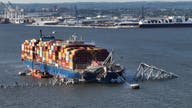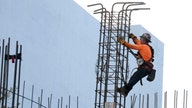Baltimore Key Bridge’s largest remaining span demolished
Crews conducted a controlled demolition on the largest remaining span of the collapsed Francis Scott Key Bridge in Baltimore. (Credit: Reuters)
Maryland Gov. Wes Moore said Sunday the container ship that caused the Francis Scott Key Bridge collapse in late March will be removed from the Patapsco River channel "within days" as salvage crews plan to refloat the ship on Monday.
Moore, a Democrat in his first term as governor, provided the update about progress in clearing the main shipping channel to Baltimore Harbor during an appearance on NBC News' "Meet the Press" with host Kristen Welker.
"I remember that first morning when the bridge fell, people were saying that, you know, this thing could take six, nine months to be able to repair the channel," Moore said. "I'm proud that we're on track and they will have that federal channel reopened, and within days we're going to have that massive vessel – the Dali – out of that federal channel."
Moore added that the "American people will be made whole on this," and that "we just have to make sure we get it done fast and on time and on budget. And that's our focus."
COLLAPSED FRANCIS SCOTT KEY BRIDGE DETONATED TO HELP FREE SHIP FROM PORT OF BALTIMORE

The Unified Command said salvage crews will refloat the Dali on Monday morning at high tide and begin a transit to a berth at the Port of Baltimore. (Chip Somodevilla / Getty Images)
The bridge collapse occurred on March 26 when the MV Dali, a Singapore-flagged neopanamax container ship, lost power as it was transiting through Baltimore Harbor. After briefly regaining power, a second loss of power left the ship unable to regain power in time to avert a collision with one of the piers supporting the main span of the Key Bridge.
A preliminary National Transportation Safety Board report found that the ship had suffered issues with its electrical system prior to the accident, though it's unclear whether those earlier malfunctions played a role in the collision.
BANK CREATES MECHANISM FOR DEPOSITORS TO CONTRIBUTE TO BALTIMORE BRIDGE COLLAPSE RECOVERY

Maryland Gov. Wes Moore said the Dali will be out of the main channel to Baltimore Harbor in the next few days. (Tierney L. Cross/Bloomberg via / Getty Images)
The collision caused a catastrophic failure of the Key Bridge, most of which collapsed onto the Dali and into Baltimore Harbor. Six highway construction workers who were doing repairs on the bridge's roadway were killed in the accident.
Wreckage of the bridge in the channel and on the Dali, which has been trapped by the debris, caused the temporary closure of the main shipping channel into Baltimore Harbor.
MARYLAND OFFICIALS SAY BALTIMORE KEY BRIDGE REBUILD COULD COST $1.9B
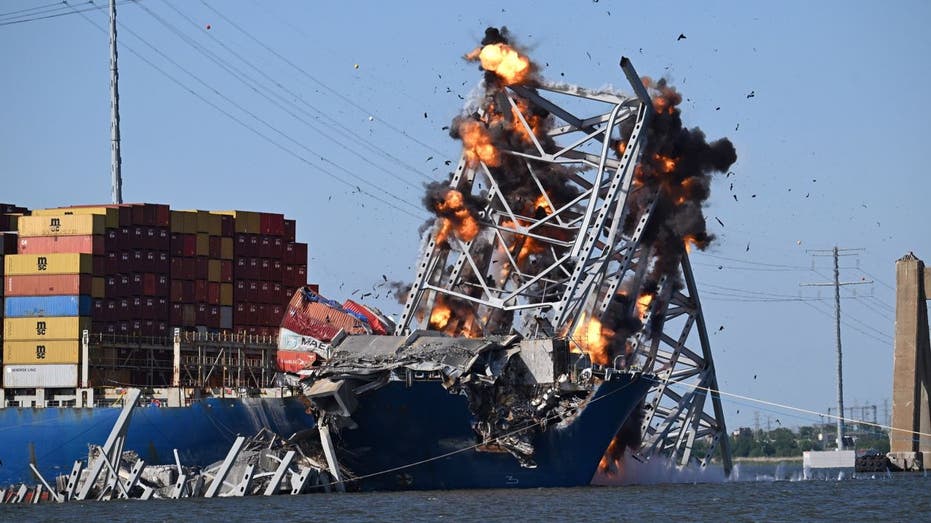
A planned explosion cuts apart a section of steel truss from the Francis Scott Key Bridge that was draped across the bow of the Dali, Monday, May 13, 2024. (Jerry Jackson/The Baltimore Sun/Tribune News Service via Getty Images / Getty Images)
After the incident occurred, the U.S. Army Corps of Engineers worked to open temporary, shallower channels to restore partial access to the port, which is a major hub on the eastern seaboard for roll-on, roll-off cargoes like vehicles as well as coal exports.
The four temporary channels in the Patapsco River, the deepest of which was 35 feet, allowed some ship and barge traffic to resume and several vessels that had been trapped in the Port of Baltimore due to the collapse were able to depart before the deepest channel was closed to allow the removal of bridge wreckage to resume.
BALTIMORE BRIDGE COLLAPSE POSES 'TEMPORARY RISK' TO LOCAL, STATE ECONOMIES: MOODY'S
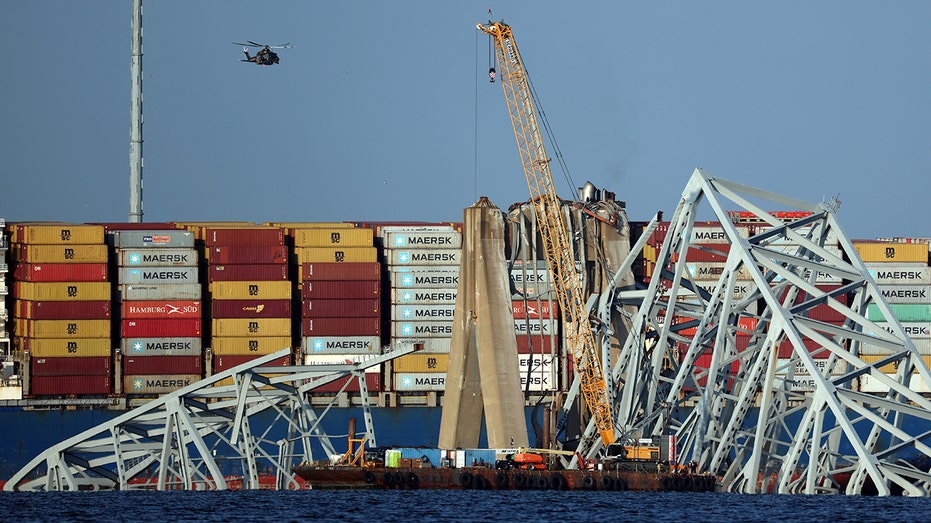
The Dali's collision with the Francis Scott Key Bridge caused it to collapse, killing six. (Kevin Dietsch / Getty Images)
Last week, crews used explosives in a controlled demolition to remove the largest portion of the span from the top of the container ship as part of the ongoing effort to clear the wreckage and fully reopen the harbor. Officials said the detonation went as planned and was a key step as they look to move the Dali out of the channel.
The Unified Command in charge of the response and recovery efforts plans to refloat and move the Dali. Preliminary measures to refloat the Dali are being taken Sunday ahead of high tide at 5:24 a.m. Monday, when it's expected to begin a transit to a berth at the Port of Baltimore about two and a half miles away with the assistance of tugboats.
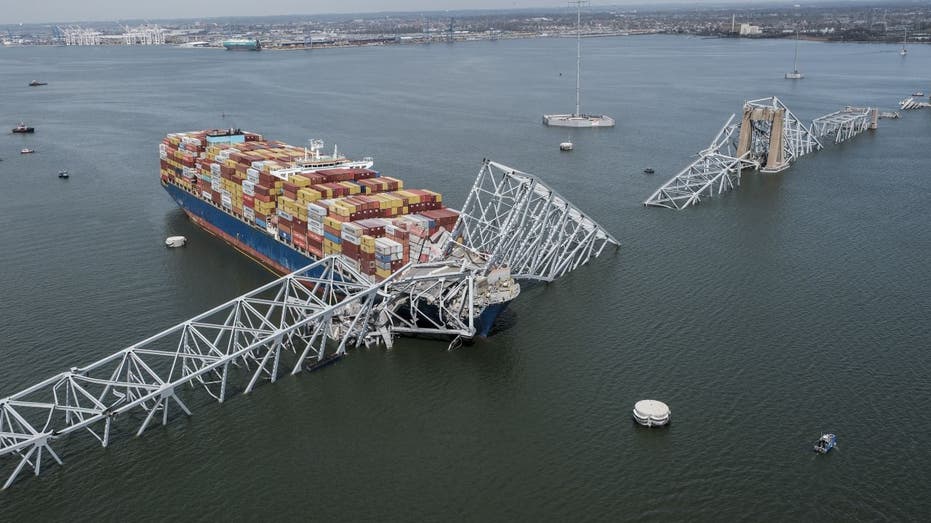
The remains of the Francis Scott Key Bridge on March 26, 2024, in Baltimore. (Michael A. McCoy for The Washington Post via Getty Images / Getty Images)
GET Gxstocks ON THE GO BY CLICKING HERE
"The refloat and transit sequence is deliberately designed to ensure all response personnel around the M/V Dali maintain control of the vessel, from refloat, transit to, and berthing at a local marine terminal," Unified Command said.
Fox News' Greg Wehner contributed to this report.


